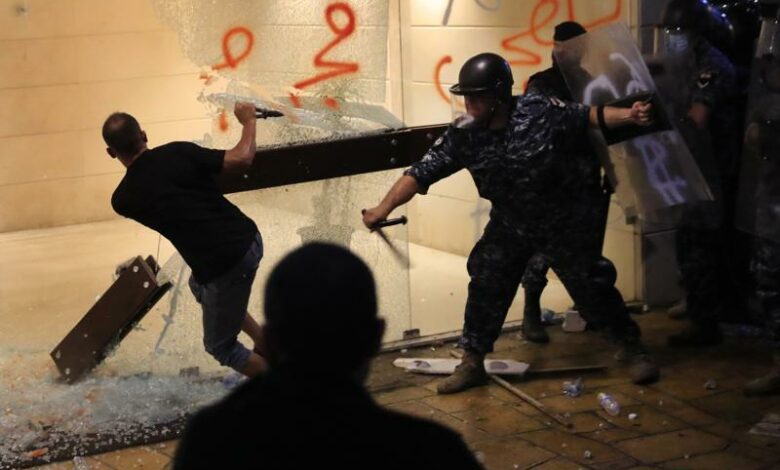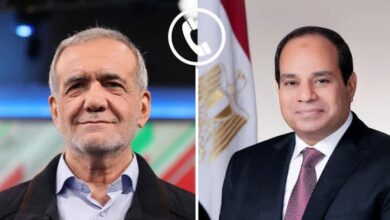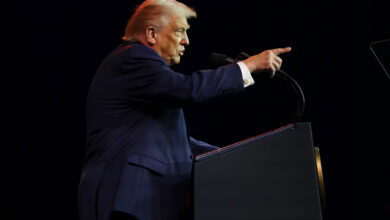
BEIRUT (AP) — Lebanon’s president said Wednesday there would be no political cover for anyone implicated in last year’s massive explosion at the Beirut port, speaking a day after protests erupted over the handling of the investigation.
The blast on August 4 was caused by the ignition of hundreds of tons of ammonium nitrate, a highly explosive fertilizer that had been stored for years at the port with the knowledge of top government officials.
It still is not clear what exactly caused the explosion, and an investigation by a state-appointed judge has been riddled by charges of political interference. The first investigator, who charged senior officials with negligence, was removed from the case.
The delays have frustrated the public, particularly amid reports that most of the Lebanese leadership, including the president, had knowledge of the explosive material stored at the port. They did little to store it safely or to alert civilians in the area of its presence.
Beirut’s port and parts of the city were devastated in the ensuing massive explosion that killed over 200 people and injured hundreds more.
Tuesday’s protests outside the house of the interior minister of the caretaker government lasted several hours. Families of the victims and explosion survivors held a mock funeral and burial outside his home. Protesters scuffled with security forces guarding the building, who fired tear gas to disperse the crowd. Dozens of protesters and security forces were lightly injured.
Interior Minister Mohammed Fehmi had rejected a request by the new lead investigator to remove immunity for one of the most senior security officials accused in the port case — the head of general security, Abbas Ibrahim, allowing him to be questioned.
President Michel Aoun said Wednesday the port investigation is ongoing and that “there will be no political cover for anyone who was negligent or guilty.” However, he did not address critics who said that Fehmi obstructed the investigation.
Aoun’s comments came during a meeting with Patrick Durel, French President Emmanuel Macron’s envoy.
Aoun also approved August 4 as a day of mourning, declaring it a national holiday. Families of the victims have been campaigning for this recognition.




